Computing
All pupils at Hillcroft School have the right to have rich, deep learning experiences that balance all the aspects of computing. With technology playing such a significant role in society today, we believe ‘Computational thinking’ is a skill children must be taught if they are to be able to participate effectively and safely in this digital world.
A high-quality computing education equips pupils to use creativity to understand and change the world. Computing has deep links with mathematics, science, and design and technology, and provides insights into both natural and artificial systems. The core of computing is Computer Science, in which pupils are introduced to a wide range of technology, including Chromebooks, iPads and interactive whiteboards, allowing them to continually practice and improve the skills they learn. This ensures they become digitally literate so that they are able to express themselves and develop their ideas through information and computer technology– at a level suitable for the future workplace and as active participants in a digital world.
We teach a curriculum that enables children to become effective users of technology who can: Understand and apply the essential principles and concepts of Computer Science, including logic, algorithms and data representation; Analyse problems in computational term, and have repeated practical experience of writing computer programs in order to solve such problems; Evaluate and apply information technology analytically to solve problems; Communicate ideas well by utilising appliances and devices throughout all areas of the curriculum.
Computing does not just end in a computing lesson; children at Hillcroft are given the opportunities to explore a range of media to showcase their learning and promote oracy. This may be through the use of videos or recordings where children are able to perform or present work they have produced. Not only are the children embedding the skills they have learnt but they are able to develop others, including oracy skills, critical thinking, problem-solving and reflective thinking.
Central to all of the work covered is our commitment to online safety, this includes how to use the internet in an effective way, how to keep safe online, how to protect our information and about cyber-bullying. We hold regular assemblies informing and updating our already knowledgeable children on the benefits as well as dangers of using the internet.
By the end of Year 6 Hillcroft children will be safe and responsible users of technology. They will be able to recognise acceptable behaviour and identify a range of ways to report concerns about content. They will also be able to select, use and combine a variety of software (including internet services) on a range of digital devices to design, write and debug programs that accomplish specific goals.
For further information on our curriculum please visit:
Pupil Voice
I love how coding lets me be creative and design new programs (Freya, Year 4)
I like learning about all the different ways we can use technology to help us in life and with our learning (Tom, Year 5)
I love using Purple Mash as it is super fun and let's me explore different ways of making games (Lucy, Year 1)
Progression of Skills and Knowledge:
At Hillcroft Primary School, we follow the National Curriculum. From this, we ensure that skills and knowledge are taught in the appropriate year groups to ensure progression and sequencing.
Across Early Years, to ensure progression from the newly published Early Years Framework into KS1, we follow the revised and updated July 2021 version of Development Matters. In our Nursery, children are aged three and four, and so the progression maps show the objectives related to Three and Four year-old objectives. However, some children join after just turning three, therefore, with these children and following rigorous assessment of starting points, it may be deemed necessary to look at the Birth to Three objectives too. For more information on this, please see the Nursery and Reception year group pages.
Below are links to our Progression of Skills and Knowledge documents.

